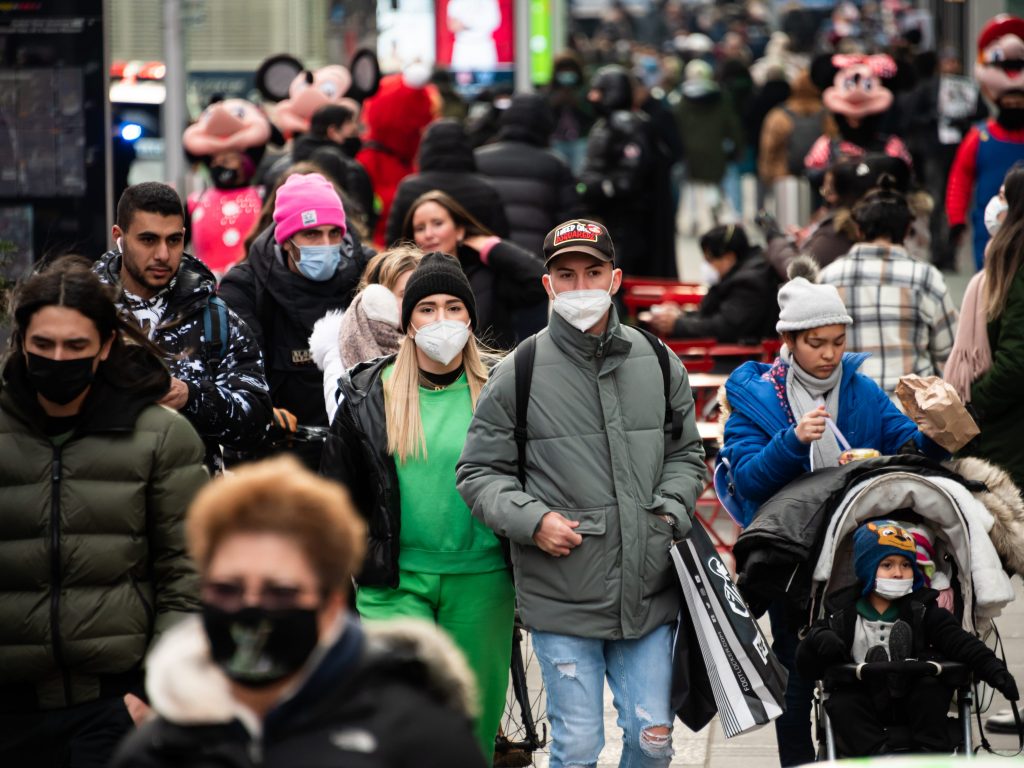- The new BA.5 subvariant is spreading across the US and there's evidence it can evade the body's immune response.
- Experts said people might consider wearing masks in crowded outdoors spaces to prevent infection.
- The CDC doesn't currently recommend wearing a mask outdoors.
As the highly infectious BA.5 variant spreads across the US, experts say they're wearing masks outdoors, especially in crowded settings, to protect against contracting COVID-19.
The BA.5 Omicron subvariant appears to better escape the disease-fighting antibodies produced after vaccination or prior infection than other subvariants, which means people are more likely to become infected, irrespective of prior immunity — though vaccines will still stop most from getting sick.
Trevor Bedford, a professor in the Biostatistics, Bioinformatics and Epidemiology Program at the Fred Hutchinson Cancer Center, told The Atlantic he expects BA.5 will infect 10% to 15% of Americans over the next few months.
The Centers for Disease Control and Prevention (CDC) recommends that Americans "wear a mask when there is a lot of COVID in your community," including in public places where there are a lot of people around, such as the grocery store.
Dr. John Swartzberg, a clinical professor emeritus in infectious diseases and vaccinology at Berkeley Public Health, told the San Francisco Chronicle that the risk of transmission with BA.5 was "greater inside or outside."
"If I was crowded together with other people where I couldn't keep my distance, or if somebody near me was talking loudly or singing, I would just carry a mask with me and put it on if I feel uncomfortable," he said.
Dr. Maimuna Majumder, a computational epidemiologist specializing in emerging epidemics at Boston Children's Hospital told Insider that she wears a mask in particuarly crowded outdoor settings, such as an open-air concert where people are cramped together. Majumder said she highly recommends that others do the same.
"It's important to remember that while the outdoors is considerably safer than many indoors spaces, the closer together people are in an outdoor space (and the more people there are), the more air people share with each other," Majumder said.
"Our goal is to reduce shared air, but if air has to be shared, it should be filtered — and a high-quality mask is a great way to achieve that," she said.
Donald Milton, a professor of environmental health at the University of Maryland School of Public Health, told Insider that he only wears N95 respirators, rather than loose-fitting masks.
As with most COVID-19 advice, there remains uncertainty and grey areas. Swartzberg said that experts were assuming the BA.5 subvariant spreads in the same way as earlier Omicron subvariants such as BA.1 or BA.2.
The risk of catching BA.5 outside is going to be substantially less than inside but we don't know if it's changed because we haven't had a lot of experience with it, he said.

